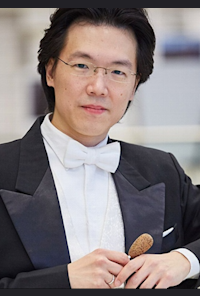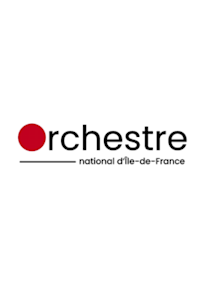Ivresse et volupté
Ossza meg
Orchestre National d'Île de France (2023)Információk a művészeti szervezettől (Verified by Operabase)
Főszerepben:
Atrium de Chaville, Chaville, France
(+ további 2)Ivresse et volupté by Brahms, Strauss, Ravel, pén 14 ápr 2023, -tól (2023/2023), Karmester Lio Kuokman, Atrium de Chaville, Chaville, France
A szereplők és a stáb megtekintése 14 ápr 2023
Válassza a Munka lehetőségetPiano Concerto No. 2 in B-flat Major, op. 83 (Piano Concerto No. 2), Brahms
Conductor
Hangszerelés
Piano


